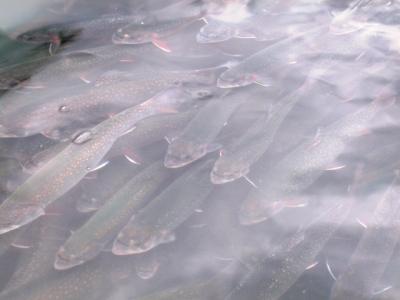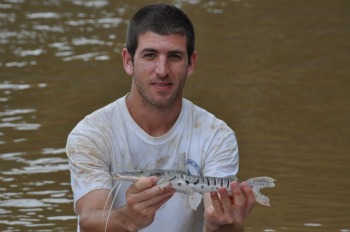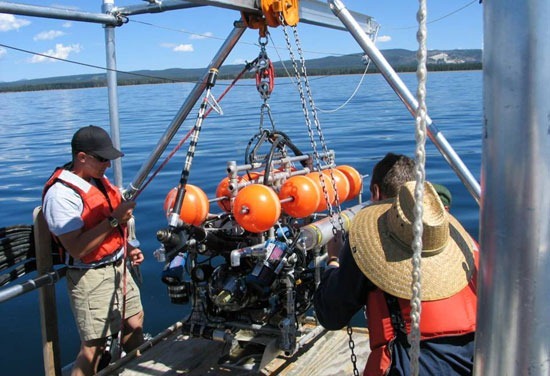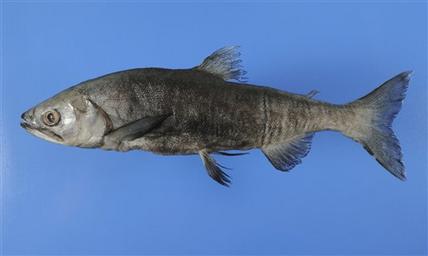Prozac for fish: no prescription needed
0
This image shows Brook trout similar to those affected by anti-depressants in Montreal’s river water.
Although they’re tightly regulated for people, requiring careful evaluation and a medical doctor’s approval, fish need no such prescription to gain access to a steady dose of Prozac and other antidepressants.
A recent study conducted by researchers in the University of Montreal’s Department of Chemistry adds to the list of reports on the prevalence of pharmaceutical compounds found in freshwater systems.
The researchers found selective serotonin reuptake inhibitors (SSRIs) in large concentrations within the livers, muscles, and brains of brook trout that were exposed in a controlled experiment to three months of treated effluent from the city’s sewage plant. The report was published last week in the peer-reviewed journal Chemosphere.
Montreal’s sewage system, according to the researchers, is comparable to that used in other major cities, which is partly why they call the results internationally significant.
Co-author and University of Montreal professor Dr. Sébastien Sauvé said he is more concerned that the research indicates a threat to aquatic life, not people. This is particularly because the lowest levels of antidepressants were found in the muscle tissue of the fish, which is the part consumed by humans. Moreover, he pointed out that the amount of antidepressants entering the river is “roughly the equivalent of a grain of salt in an Olympic-size swimming pool.”
The scientists measured the levels of six antidepressants and four of their N-desmethyl metabolites using liquid chromatography–tandem mass spectrometry, according to the study abstract. The most prevalent of the drugs found was Prozac.
Sauvé said the city’s sewage system, which releases its effluent into the St. Lawrence River, is simply incapable of handling these pharmaceutical contaminants.
“Montreal has a very basic sewage system — the city basically only removes solids; there’s no disinfecting of the water,” he said. “In any case, the chemical structure of antidepressants makes them extremely difficult to remove from sewage, even with the most sophisticated systems available.”
So how does one tell whether a fish is happier? The researchers said they don’t understand precisely how these chemicals are affecting aquatic life, but they propose tracking levels of serotonin — the “happy hormone” — in their brains as a means of gauging the drugs’ impacts.
The presence of drugs in water has been known to some extent since the ‘70s. However, modern water quality monitoring technology, which can detect chemical contamination at lower concentrations, has revealed how widespread the issue is.
Other studies have turned up antibiotics, steroids, other hormones, cancer therapies, lipid regulators, and anti-inflammatory drugs in numerous waterways. They can arrive either through human waste or direct disposal.
Montrealers are feeding fish Prozac [University of Montreal] Distribution of antidepressants and their metabolites in brook trout exposed to municipal wastewaters before and after ozone treatment – Evidence of biological effects [Chemosphere] Antidepressants found in fish [The Montreal Gazette] Even fish are getting drugs like Prozac [eMaxHealth]
Image Credit: The University of Montreal













